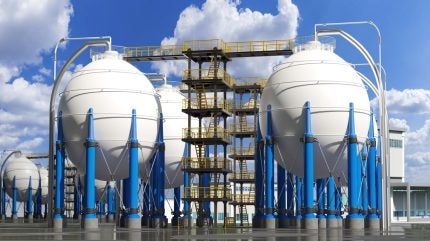
Egypt has reached a series of agreements to procure between 150 and 160 cargoes of liquefied natural gas (LNG) through 2026, reported Reuters.
This move comes as Egypt seeks to address its increasing power demands amidst challenging economic conditions.
The agreements, involving global energy companies and trading houses, are set to cost Egypt more than $8bn at current prices.
The companies include BGN, PetroChina, Saudi Aramco, Shell, SOCAR, Trafigura and Vitol, according to industry sources.
The Ministry of Petroleum and the Egyptian Natural Gas Holding Company have not yet responded to requests for comment.
The LNG deals are pivotal for Egypt, which has experienced rolling blackouts over the past two years due to a shortfall in natural gas supply.

US Tariffs are shifting - will you react or anticipate?
Don’t let policy changes catch you off guard. Stay proactive with real-time data and expert analysis.
By GlobalDataThe country, which had ambitions to become a gas supplier to Europe, has reverted to being a net importer as domestic production declined.
Egypt has already secured 75 cargoes this year and plans to use an additional 50–60 cargoes to meet this year’s demand, with the remainder to be delivered by the end of 2026, making a total of 235 cargoes for this year and next.
The cargoes were negotiated at a premium of $0.70–0.75 above the gas price at the Dutch TTF hub, with a nine-month deferred payment option.
However, the cost of maintaining the electricity supply is straining the resources of the government, which is already grappling with a cost of living crisis, currency challenges and sluggish economic growth, the report stated.
The government is planning to seek assistance from the International Monetary Fund.
To accommodate the increased LNG cargo volumes, Egypt is upgrading its infrastructure in Alexandria and Ain Sokhna.
The country currently operates three floating storage and regasification units and expects a fourth from Turkey’s state-owned BOTAS.
In May 2025, it was reported that Egypt is in discussions with energy companies and trading houses to acquire between 40 and 60 cargoes of LNG as the nation faces an escalating energy crisis in anticipation of peak summer demand.



